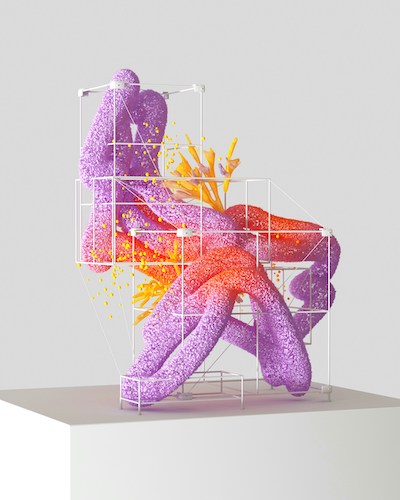By Amy Schabacker Dufrane
Human resources professionals have the enviable role of influencing many parts of the business. From talent acquisition to employee benefits and from facilities management to crisis communications, leadership teams turn to HR first for guidance and calculated courses of action. The global pandemic was an excellent example of how quickly HR was able to rally the workforce resources and activities needed to keep businesses running 24/7 in the wake of unprecedented times.
Artificial intelligence (AI) and its bright promises and possible disruptions represent the next frontier for HR. Watson, Gemini, Claude, ChatGPT and Perplexity are becoming commonplace terms, before any of us had a chance to fully understand their potential. It’s like having a team of new employees with amazing skills and not quite knowing where and how to deploy them. Yet.
First, we need to acknowledge that AI is here, multifaceted, and operational. All of us are already using it in our daily lives. There are several types of AI, such as:
- Reactive AI is programmed to react to certain inputs such as questions. For example, when asked if a store is closed on Tuesdays, a chatbot powered by reactive AI responds predictably. It can predict what you might want to watch on Netflix given your streaming history. What reactive AI cannot do is take the conversation further.
- Narrow AI is used in game theory or to perform a single, select task. This flavor of AI has a single cognitive capability. Image recognition and Siri are good examples.
- Super AI can include complex problem-solving and independent decision-making. If fully realized, it could become significantly more intelligent than humans. Remember Hal in 2001: A Space Odyssey? It became capable of speech and facial recognition, lip reading, emotional behaviors, reasoning, and more. One can easily understand why concerns such as ethics and safety require tackling before it’s put into play.
It’s simple to see how quickly the breadth of AI can make a difference. Now, there’s a new wave of artificial intelligence-powered solutions known as agentic AI. These “agents” can be part of the workforce, even to the extent of having job descriptions and appearing on organizational charts. AI agents can automate repetitive administrative tasks such as status updates, identify gating items that block projects, and even keep project teams engaged. In fact, research by Dr. Rebecca Hinds, head of Asana’s Work Innovation Lab, found that daily users of AI in the workforce are 63 percent more likely to consider it as a teammate with whom they actively collaborate. While it’s exciting to consider how your workforce has just expanded, it’s also mind-boggling to consider what it means to your HR department.
Global industry analyst Josh Bersin started studying the use of AI agents early on. He sees working with AI agents in the manner you’ve already previously worked with interns, new employees, contractors, consultants, and temps. With companies buying and building hundreds of AI agents, this new digital workforce needs to be managed like any other. Who trains them? Activates or deactivates them? Provisions one? Tracks their skills and data access privileges?
As you might suspect, all of this is heading HR’s way. While IT will need to still remain heavily involved in AI agents – and HR technology providers including Workday are already launching agent systems of record to guide the process – the implications of AI for HR are immense. For example, do your current systems enable you to delineate a person from an agent? Are your managers ready to manage agents as members of their teams? Will you replace people with agents or use agents to increase the productivity of your current workforce?
As 2025 imperatives, Bersin encourages us to reconsider jobs in the content of productivity-based design that considers how AI can empower workers. By creating dynamic talent models that incorporate AI, he says, HR can foster internal mobility and increase performance. Whether problem-solving, ideating, or sifting through interconnected systems, one thing is for certain. HR is the logical place for AI to enhance existing processes, add new capabilities, and redefine how work happens. Grab every chance you get to learn more about AI’s game-changing potential!

